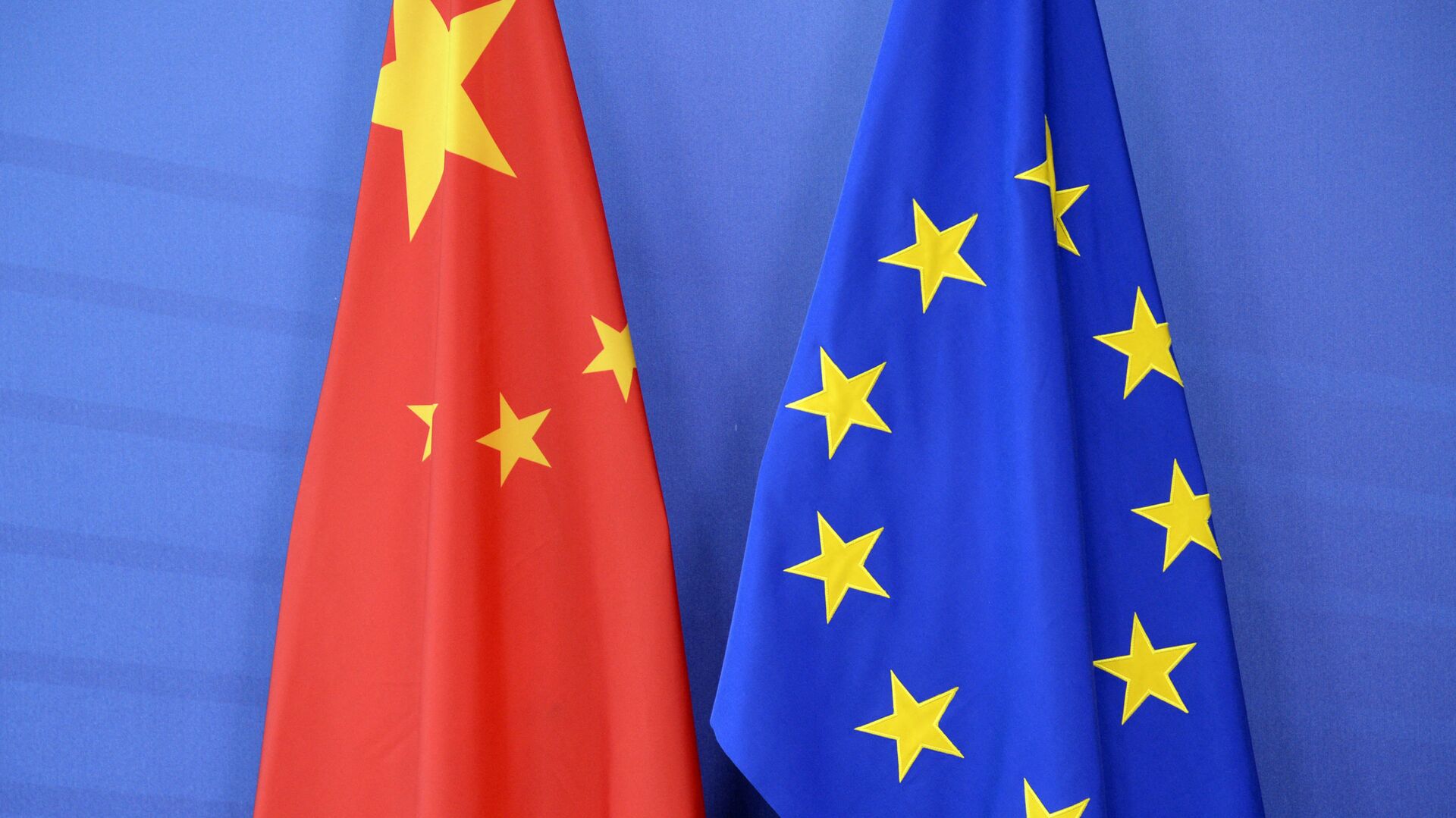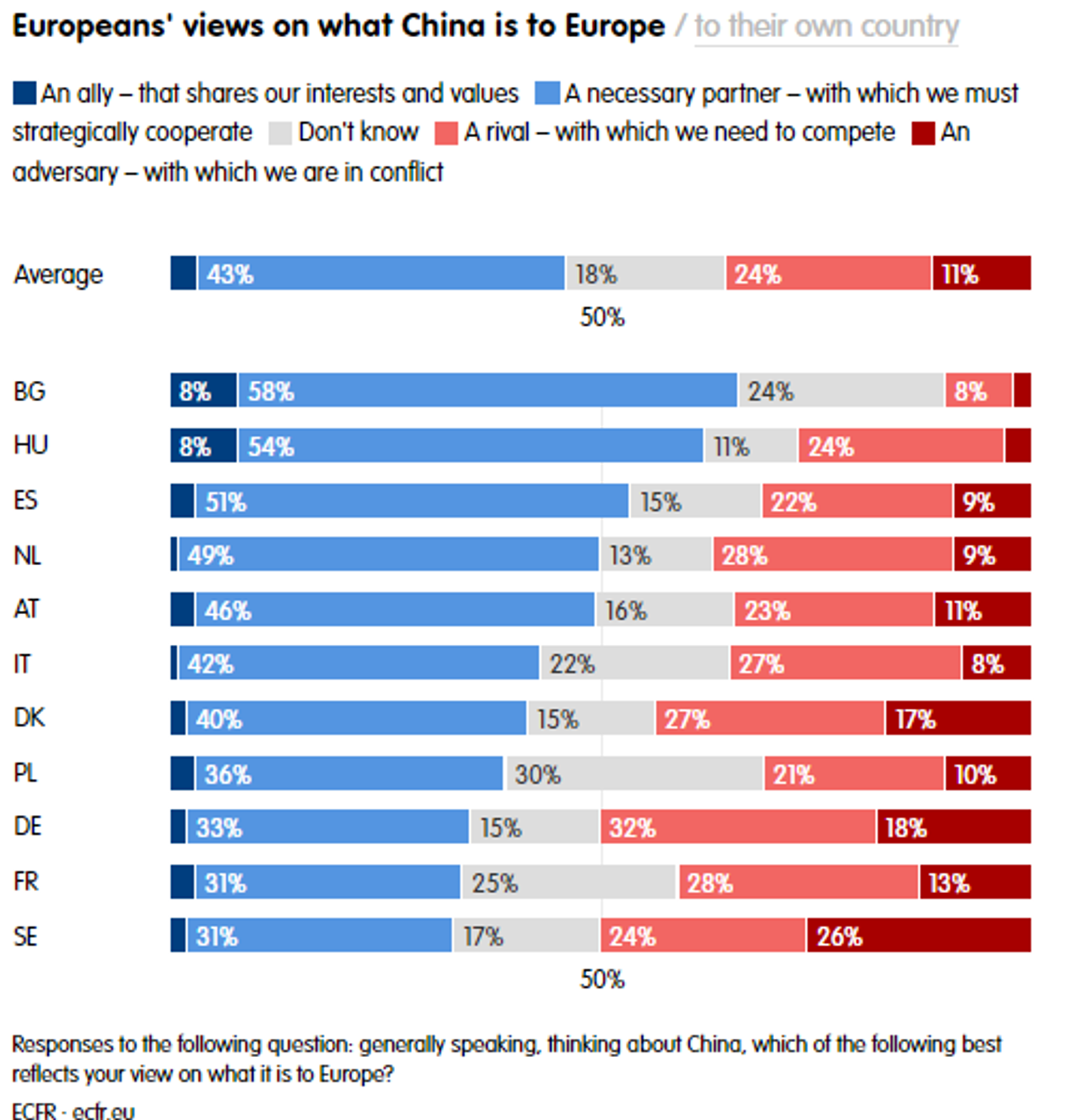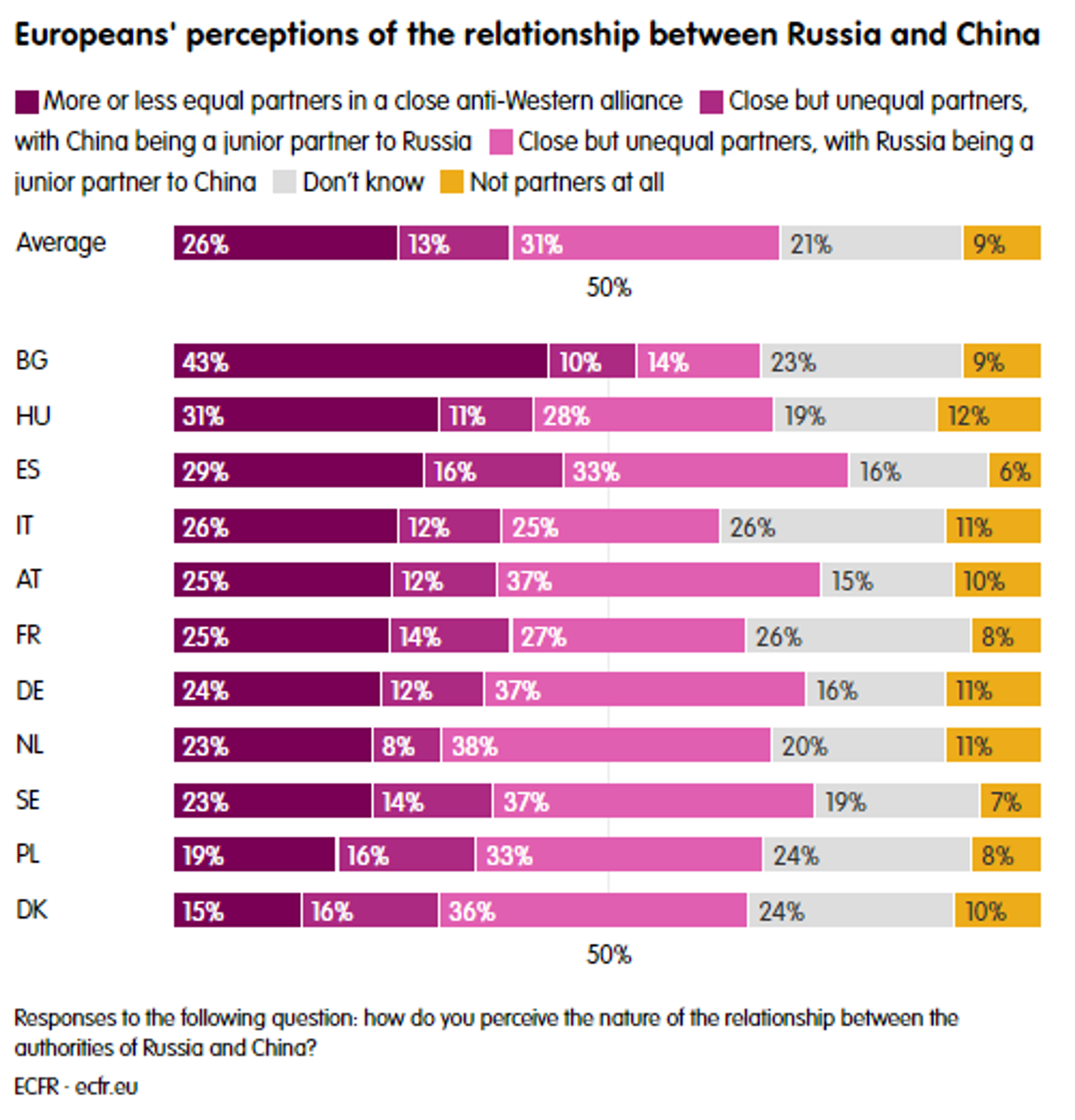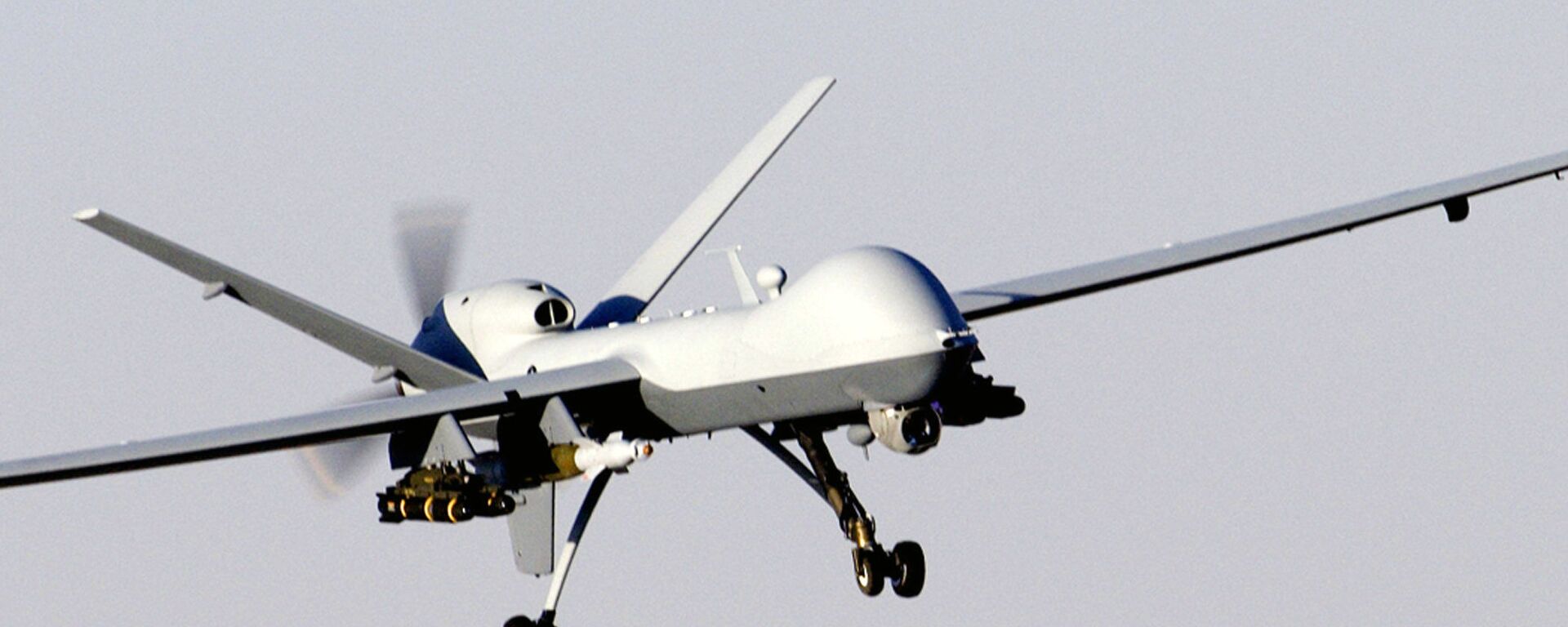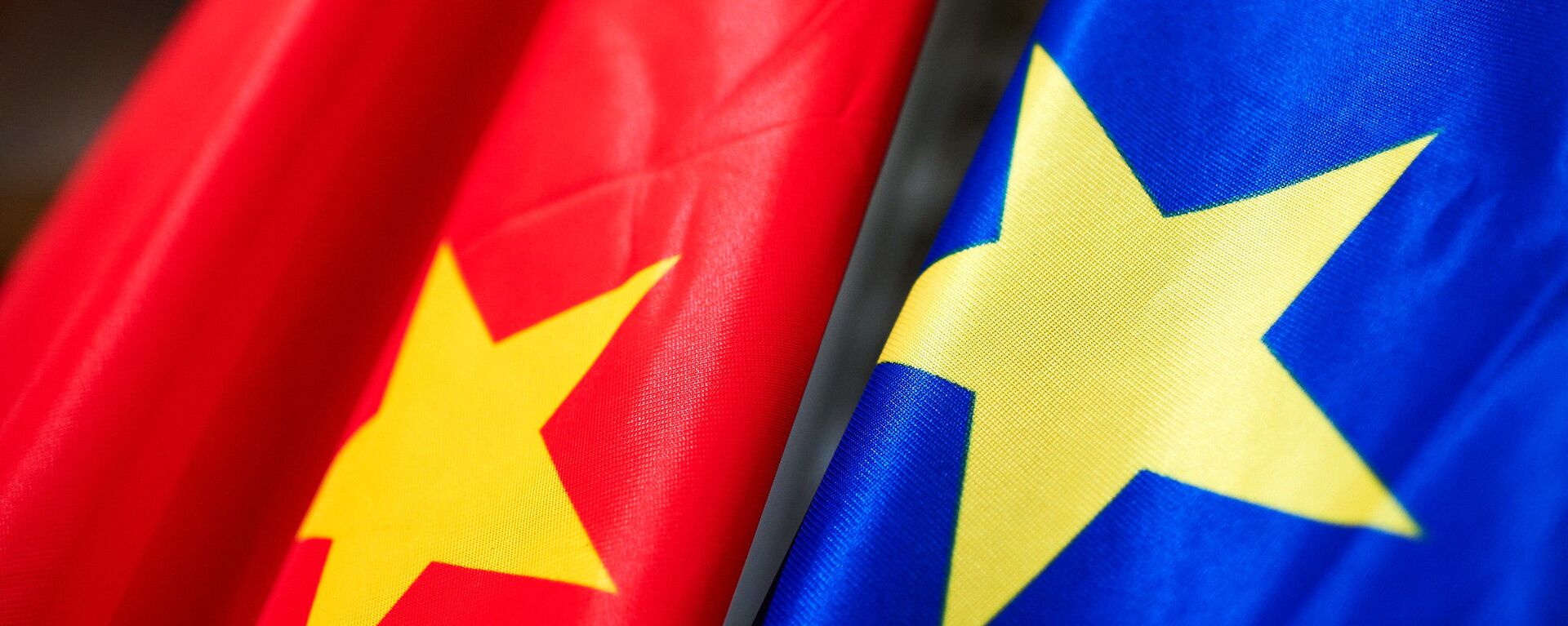https://sputnikglobe.com/20230608/most-europeans-choose-neutrality-in-us-china-conflict-call-beijing-necessary-partner---poll-1111003667.html
Most Europeans Say Beijing 'Necessary Partner', Keep Neutral Over US-China Spat
Most Europeans Say Beijing 'Necessary Partner', Keep Neutral Over US-China Spat
Sputnik International
Most Europeans would support neutrality in a US-China standoff, according to a new poll by the European Council on Foreign Relations (ECFR).
2023-06-08T12:36+0000
2023-06-08T12:36+0000
2023-06-19T12:47+0000
world
china
beijing
washington
joe biden
emmanuel macron
chinese communist party
european council on foreign relations
european union (eu)
xi junyang
https://cdn1.img.sputnikglobe.com/img/07e5/05/05/1082808941_0:173:3027:1875_1920x0_80_0_0_f965a6eda10b14e0067a288655cf8178.jpg
Most Europeans would support neutrality in a US-China stand-off, according to a new poll.More than 60 percent of respondents, surveyed in 11 countries of the European Union, said that they would prefer their country not to take any side in case a conflict between Washington and Beijing erupted over Taiwan, according to the new survey from the European Council on Foreign Relations (ECFR).No more than 23 percent revealed they would opt to side with Washington, which has been increasingly belligerent towards the Asian powerhouse, designating it a "challenge" and a "threat". Earlier this year, US intelligence leaders said that the Chinese Communist Party (CCP) remained the "most consequential threat" to America's national security.Individuals in the 11 EU member states - Austria, Bulgaria, Denmark, France, Germany, Hungary, Italy, the Netherlands, Poland, Spain, and Sweden - were asked the question: Generally speaking, thinking about China, which of the following best reflects your view on what it is to Europe?Most respondents to the ECFR poll saw Beijing more as a strategic partner than a rival or adversary, and revealed they were reluctant to "de-risk" from China. A mere 22 percent of Europeans saw the European region’s economic relationship with China as fraught with more risks than benefits. It was European Commission President Ursula von der Leyen who had recently touted this need for "de-risking", saying: "China’s rise as an international political and economic actor shows that decoupling is not viable, desirable or even practical for Europe. But there is clearly a need for Europe to work on de-risking some important and sensitive parts of our relationship.” Although those European leaders who share her views weight the risks and opportunities of "engagement with China”, most of those polled in April 2023 by the ECFR do not see China as a power that "challenges and wants to undermine Europe".When asked about the relationship between China and Russia, some 70 percent of respondents recognized that the two countries were close partners.There were only three countries where a majority of the respondents appeared to see China as a “rival” or an “adversary”, rather than an “ally” or “partner”. These were Germany, France, Denmark, and Sweden.The researchers underscored that the ECFR’s poll results showed that European citizens were more inclined to side with French President Emmanuel Macron's stance on Taiwan, rather than that of the administration of US President Joe Biden. Back in April, after Macron's visit to Beijing for talks with Xi Jinping and other senior Chinese officials, the French leader urged the EU not to allow itself to be sucked into the confrontation between Washington and Beijing over Taiwan, stating that Europe must diminish its dependency on the US and build up its "strategic autonomy". Europe should avoid being "caught up in crises that are not ours", the French president said, referring to China-US tensions over Taiwan.
https://sputnikglobe.com/20230608/us-japan--taiwan-to-integrate-real-time-drone-data-amid-china-threat-narrative-tensions--1110996995.html
https://sputnikglobe.com/20230512/damned-if-eu-do-damned-if-eu-dont-borrell-says-china-led-world-order-inevitable-1110298061.html
china
beijing
washington
taiwan
Sputnik International
feedback@sputniknews.com
+74956456601
MIA „Rossiya Segodnya“
2023
News
en_EN
Sputnik International
feedback@sputniknews.com
+74956456601
MIA „Rossiya Segodnya“
Sputnik International
feedback@sputniknews.com
+74956456601
MIA „Rossiya Segodnya“
europeans, neutrality, us-china conflict, new poll, european union, us-china conflict, over taiwan, european council on foreign relations, ecfr, consequential threat, de-risk from china,
europeans, neutrality, us-china conflict, new poll, european union, us-china conflict, over taiwan, european council on foreign relations, ecfr, consequential threat, de-risk from china,
Most Europeans Say Beijing 'Necessary Partner', Keep Neutral Over US-China Spat
12:36 GMT 08.06.2023 (Updated: 12:47 GMT 19.06.2023) As tensions between Washington and Beijing mount, and policymakers in the European Union work on de-risking parts of their relationship with the Asian powerhouse, a recent survey revealed that a majority of people in the EU fail to consider China as a “rival” or “adversary”.
Most Europeans would support neutrality in a US-China stand-off, according to a
new poll.
More than 60 percent of respondents, surveyed in 11 countries of the European Union, said that they would prefer their country not to take any side in case a conflict between Washington and Beijing erupted
over Taiwan, according to the new survey from the European Council on Foreign Relations (ECFR).
No more than 23 percent revealed they would opt to side with Washington, which has been increasingly belligerent towards the Asian powerhouse, designating it a "challenge" and a "threat". Earlier this year, US intelligence leaders said that the Chinese Communist Party (CCP) remained the "most consequential threat" to America's national security.
Individuals in the 11 EU member states - Austria, Bulgaria, Denmark, France, Germany, Hungary, Italy, the Netherlands, Poland, Spain, and Sweden - were asked the question: Generally speaking, thinking about China, which of the following best reflects your view on what it is to Europe?
Most respondents to the ECFR poll saw Beijing more as a strategic partner than a rival or adversary, and revealed they were reluctant to "de-risk" from China. A mere 22 percent of Europeans saw the European region’s economic relationship with China as fraught with more risks than benefits.
It was European Commission President Ursula von der Leyen who had recently touted this need for "de-risking", saying: "China’s rise as an international political and economic actor shows that decoupling is not viable, desirable or even practical for Europe. But there is clearly a need for Europe to work on de-risking some important and sensitive parts of our relationship.”
Although those European leaders who share her views weight the risks and opportunities of "engagement with China”, most of those polled in April 2023 by the ECFR do not see China as a power that "challenges and wants to undermine Europe".
When asked about the relationship between China and Russia, some 70 percent of respondents recognized that the two countries were close partners.
“European citizens aspire to remain neutral in a US-China conflict and are reluctant to de-risk from China - even if they recognize some risks in China’s economic presence in Europe,” the researchers wrote.
There were only three countries where a majority of the respondents appeared to see China as a “rival” or an “adversary”, rather than an “ally” or “partner”. These were Germany, France, Denmark, and Sweden.
The researchers underscored that the ECFR’s poll results showed that European citizens were more inclined to side with French
President Emmanuel Macron's stance on Taiwan, rather than that of the administration of US President Joe Biden. Back in April, after Macron's visit to Beijing for talks with Xi Jinping and other senior Chinese officials, the French leader urged the EU not to allow itself to be sucked into the confrontation between Washington and Beijing over Taiwan, stating that Europe must diminish its dependency on the US and build up its "strategic autonomy". Europe should avoid being "caught up in crises that are not ours", the French president said, referring to
China-US tensions over Taiwan.
